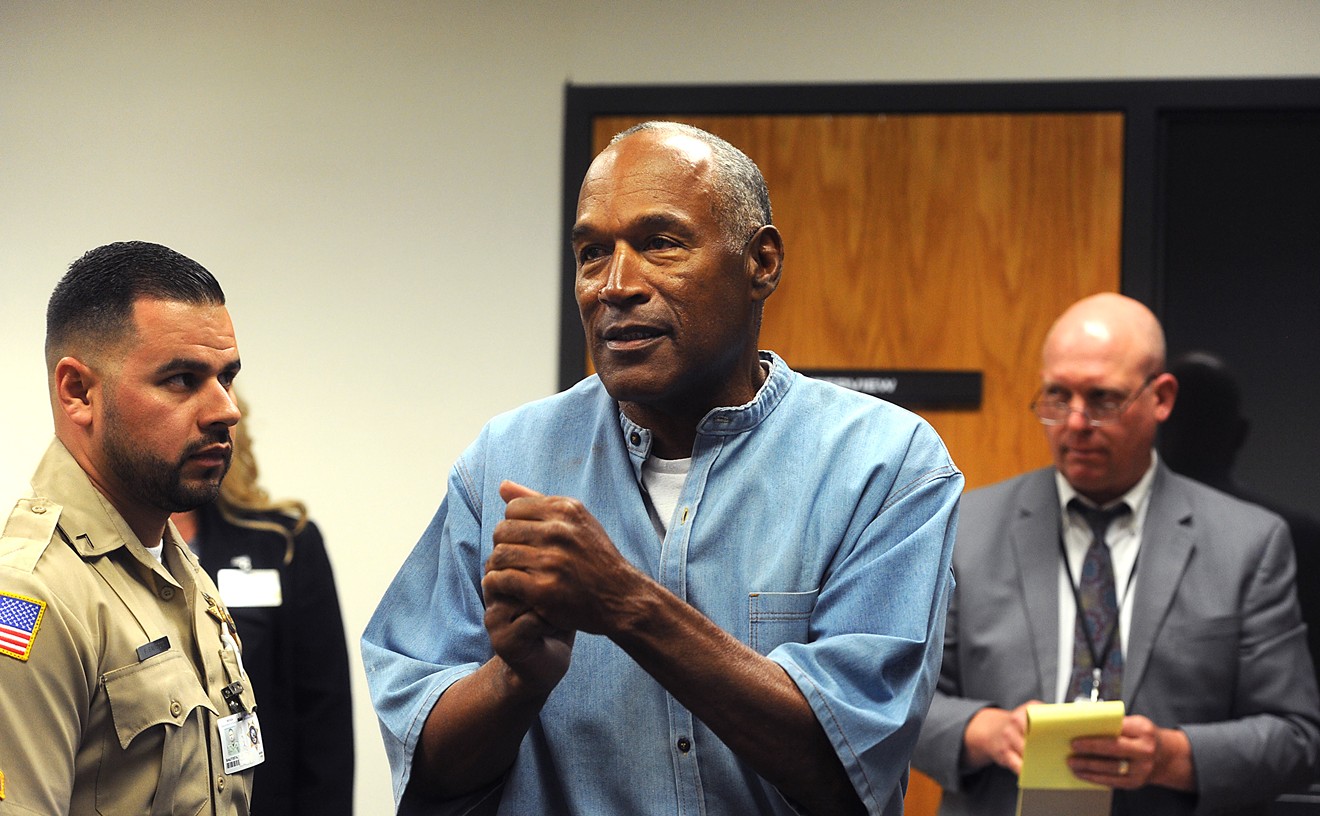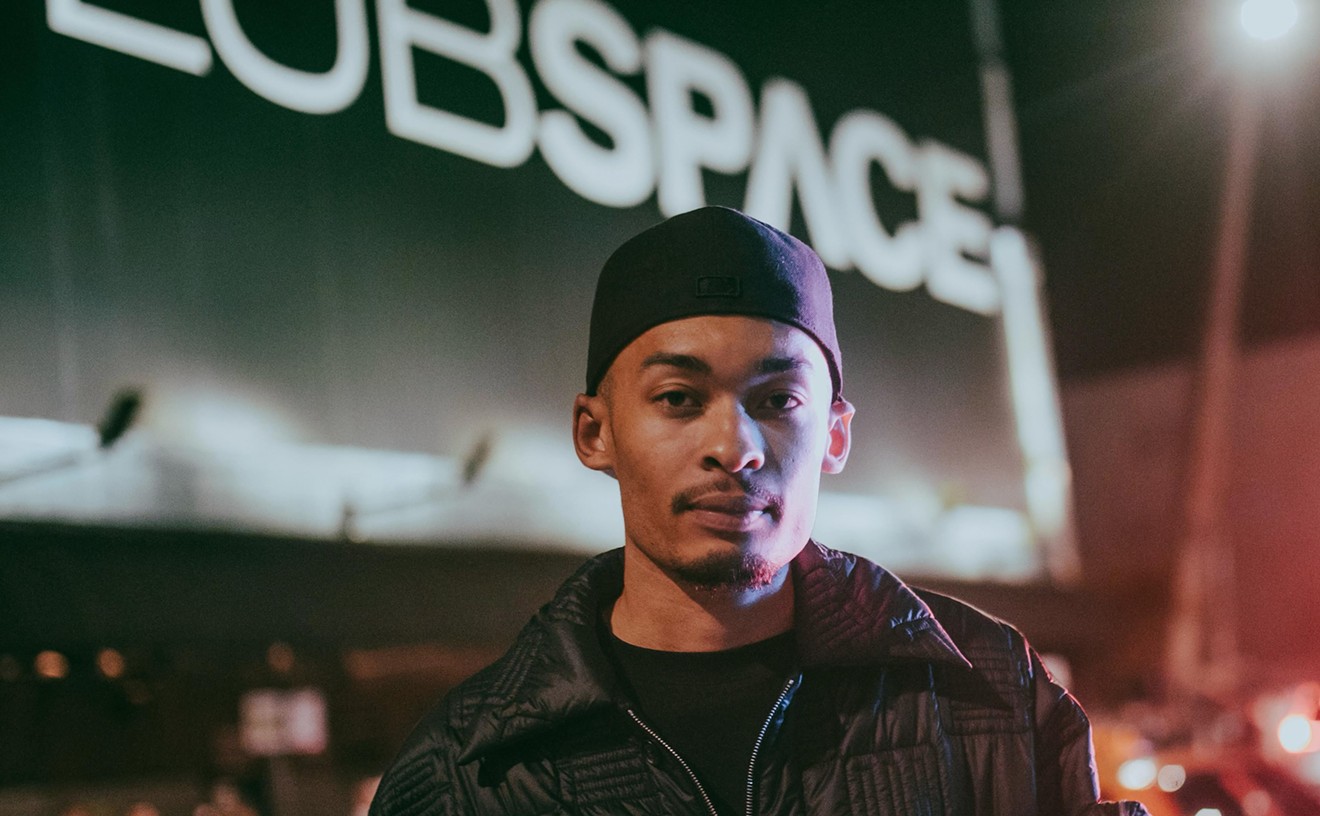A likable hagiography as nuanced as a plaque at the Cooperstown Hall of Fame, Brian Helgeland's Jackie Robinson bio 42 finds a politic solution to the challenge Quentin Tarantino faced last year with Django Unchained: How to craft a crowd-pleasing multiplex period piece whose villain is, essentially, "all white people"?
Helgeland solves this by being ingratiating, sometimes too much so. A newsreel-style opening offers the historical context Hollywood can't trust high schools to have provided; in it narrator Andre Holland toasts to "the greatest generation" — an honorific that takes on ironic weight as the film amasses its considerable power. Sure, they licked Hitler, but how can we call these folks the greatest Americans ever when they freed up their afternoons to head down to the ballpark and shout "nigger" at Jackie Robinson?
"I realize that attitude is part of your cultural heritage," Harrison Ford rumbles as Branch Rickey, the general manager of the Brooklyn Dodgers, to a minor-league coach who expresses distaste about taking Robinson on with the Montreal Royals, previously a whites-only team. ("Montreal Royals": has so much major-league failure ever been built into a single name?) That coach comes around, because he and Rickey — to flip a racist phrase of the day — are each one of the good ones, white folks who transcend their raising and become credits to their race.
In the first half, grand moments of Robinson's life (and American history) drift past like parade floats: well crafted, incidentally arresting, but not strung together into a dramatic narrative. Chadwick Boseman, who stars as Robinson, at first seems given only two things to play: quiet confidence at the plate and even quieter stoicism when insulted by white people. He aces both, but he and the movie both get more interesting the closer Robinson gets to the Dodgers and Ebbets Field — here a videogame re-creation that never quite fools the eye.
In the majors, we have a story, one that grows more and more compelling right up until the ridiculously protracted climactic slow-mo baserunning. Some Dodgers revolt against Robinson's arrival, hotels refuse to book the team on the road, and then there are the death threats, the pitchers aiming for his face, and the Philadelphia coach who actually shouts "You don't belong here! Get that through your thick monkey skull!" A dusty intimacy distinguishes the baseball scenes, which are excellent, if abbreviated. Robinson's duels with pitchers are especially involving, both at the plate and on base, where he harrows the bastards like Bugs Bunny might Elmer Fudd. Helglend's commitment to ball-game detail invigorates the film; besides the rousing pitch outs, we're treated to announcer Red Barber deeming a game "tighter than a new pair of shoes on a rainy day," and a 10-year-old boy explaining a balk to his mother.
As Robinson take the white world's abuse, Boseman's eyes moisten, redden, and finally seem to scab over with anger and hurt. Those scabs get ripped off, once, courtesy of that Philly coach and a couple tough at-bats. Boseman — so adept at holding back, at suffering — at last gets to rage. Off the field, he shatters a bat and howls, a moment of welcome rawness that Helgeland immediately balms with avuncular words from Ford's pleasantly absurd Rickey. In the role, Ford plumbs the depths of his voicebox, and phlegms up his breathing; he sounds like Walter Matthau doing Nixon. After the fightin' senior nonsense of that last Indiana Jones movie, he's finally playing an old man for real, hunched over, tweeded out George Will — style, and never even close to punching anybody.
Rickey integrates baseball against its will, and Robinson, of course, wins over the Flatbush Faithful. But this isn't presented as the usual victory for principled liberalism. The movie is engineered to appeal to what Variety calls a "faith-based audience" — which, really, describes anyone who still finds hope enough to pony up for movie tickets. Rickey insists that the only color he cares about is green, as in the money black ballplayers are bound to bring in. For most of the film he's a free-market integrationist, a best-case example of the argument that the greater good is yoked to the invisible hand. A devout Methodist, his quotations from scripture add to 42's steady hum of Good Book moralizing. There's little of the drinking or swearing you'd expect in a baseball movie, and Rickey even gets to preach against adultery. (The bible verses segregationists used to support their cause are conspicuously absent.)
Boseman mostly manages to play a flesh-and-blood man despite 42's attempts to present him as a statue just unveiled. Helgeland limits the scope to Robinson's first major league season, so we're spared the usual through-the-decades biopic rush. Another boon: Robinson's marriage is a happy one, and Nicole Beharie, playing his wife, gets to smile and talk baseball rather than endure the usual long-suffering bride-of-the-famous-man routine.
Still, the movie sugars up Robinson's story, and like too many period pieces it summons some vague idea a warmer, simpler past by bathing everything in thick amber light, as if each scene is one of those preserved mosquitoes that begat the monsters of Jurassic Park. It's the honeyed light of nostalgia, but what exactly about this 1947 are we supposed to yearn for today? That era's more open racism? The suffering endured by anyone who stood up to it? The novelty of a black man taking a previously white job — and catching serious hell for it every single day?
Let's go with "afternoon games."











